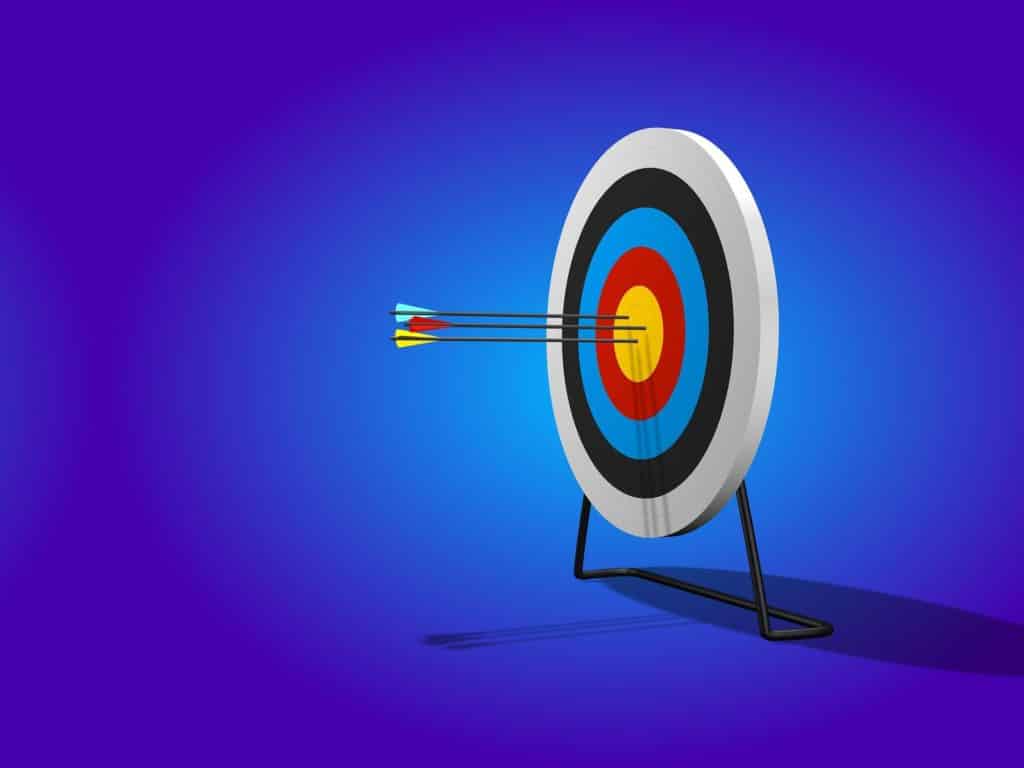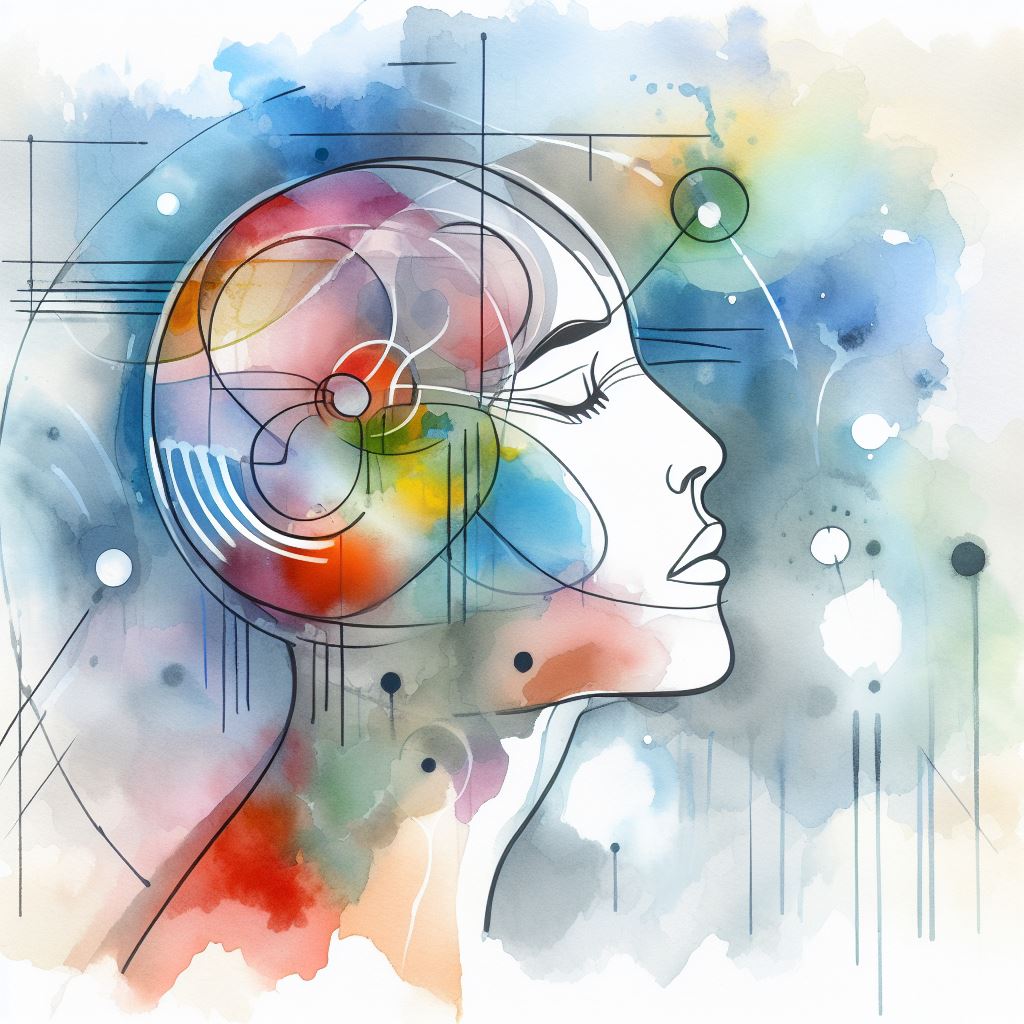Imagine if you could improve a performance-based activity such as public speaking, dating, or doing well in an interview just by playing it out in your head.
Well, by utilizing mental rehearsal techniques, you can do exactly that.
By mentally rehearsing an anticipated experience before it happens, you’re more likely to perform well. You can mentally simulate any experience before it happens which facilitates the space to practice, rehearse, and prepare.
Let’s look at how you can mentally rehearse before any event to give you the ultimate edge.
What is mental rehearsal?

Mental rehearsal is a technique to mentally prepare for, and improve your performance of an anticipated event.
Mental rehearsal isn’t about learning new things. It’s about applying the knowledge you already have to a simulated scenario. The more you play out this scenario as successfully as possible, the more likely you are to execute it successfully in real life.
Think about it this way: if you repeatedly envision yourself doing well at something, you’re likely to perform well too. Mentally you’re creating a pathway to walk, meaning you’re less likely to:
- Become flustered and forgetful
- Feel nervous and fumble
- Get caught off guard
- Make mistakes and muck up
You’re more likely to achieve your desired outcome when you envision it happening because you’ve already been there and done that many times already, therefore it doesn’t feel intimidating. Your performance becomes muscle memory-oriented instead of improvising.
Mental rehearsal can be applied to almost anything you do, so it can be a game-changer when making or breaking anticipated opportunities.
Since you can mentally rehearse anytime, anywhere, you have every opportunity to shorten your learning curve solely with the power of your mind.
How does mental rehearsal work?
Studies suggest that new neural pathways are formed via mental rehearsal. Existing connections are strengthened similarly to physically practicing the activity.
By rehearsing an anticipated event repeatedly in your mind, you’re going to reinforce your intended outcome – and unconsciously veer towards it.
Therefore, it’s going to feel much more natural for you.
Likewise, when you anticipate every potential challenge you may encounter, you set yourself up for success because you have planned for those challenges. If you encounter one, you have already envisioned what to do.
As long as you explore each potential pathway in your inner reality, plan for each possible situation, and see yourself successfully overcoming any road bump, you greatly improve your chances of executing the performance smoothly.
What can mental rehearsal be used for?
Mental rehearsal can be helpful for your physical performance, preparation for an anticipated event, and eliminating worry or fear.
Here are some things mental rehearsal can help you with:
- Public speaking
- Speaking and pronunciation
- Rehearsing a presentation
- Excel in interviews and meetings
- Dating
- Physical activity that requires coordination or precision
- Conversational skills
- Body language and mannerisms
- Dancing, theatre, and performance
- Practicing an instrument
- Fine motor abilities
- Performing crafts and skills
Mental rehearsal to desensitize

Mental rehearsal can also be done to help you desensitize from particular negative or unintended outcomes.
This phenomenon has been studied here, where people have desensitized from irrational fears, by playing them out in their mind.
If you’re nervous about an upcoming job interview, meeting someone new, or doing something out of your comfort zone, mentally rehearse the event before it happens. This can be a great way to ease the nerves and make you feel more confident.
It’s no mystery why successful public figures often rehearse before important events. Resourcefulness like this has helped them get to where they are today.
During my youth, I feared being engaged during a live event. On the odd occasion when I was called upon with all eyes on me, my face lit up like a ripe tomato.
This tendency to blush when the spotlight was on me only made the situation more awkward. I wanted to end this embarrassing habit, so here’s what I did.
Sometimes I visualize myself in the audience of an event when I’m laying in bed. In my visualization, the performer will ask me a question.
“What’s your name? Why don’t you come on stage and make yourself known.”
As I’m playing the scenario out in my mind in vivid detail, I’ll start to feel the same discomfort as I would in real life.
As I envision this happening while lying in bed, I’ll feel blood rushing to my face. My body heats up like an oven. However, instead of trying to compose myself as I would in real life, I’ll exacerbate the situation in my mind.
In my visualization, I will fumble. The performer will be silent, waiting for my response. I will blush more and begin sweating.
The performer will make a witty comment: “Look at this guy, why is he going so red from such a simple question?” The crowd will start laughing while I’m standing there.
I’m trying to dig into that uncomfortable sensation by playing out the worst-case scenario and sitting with the emotional and physiological response.
After a little while, the emotional response will subside. Every time I did this, I imagined a similar situation to drum up an uncomfortable response. However, every consecutive time I did this mental rehearsal technique, both the emotional and physiological responses lessened.
Now I don’t have an emotional reaction because I already experienced this situation many times, therefore it’s not a big deal.
Mental rehearsal for preparation

I used to be a very shy person. Social interactions scared the crap out of me, so you can only imagine what dates were like. Due to being inexperienced, I didn’t know what to do, say, or how to behave. When the rare opportunity for a date arose, I always blew it.
So I would start envisioning myself on a date.
Every time I mentally rehearsed a date, it was always in a different set and setting, with a different person. This person would always have a different personality, and there would be obstacles to overcome.
Perhaps I spilled a coffee over my date or left my wallet at home. Perhaps my date started flirting with another guy at the bar, or we just had nothing in common. Envisioning a broad range of challenges gave me the flexibility I needed to improve this skill set.
At first, it was difficult to even imagine myself doing well because I didn’t know what well was. To learn, I watched YouTube videos on the topic, paid attention to characters in movies, and observed other people’s dates in real life.
I would visualize myself being charismatic and making the woman laugh. Sometimes I would imagine myself in other people’s shoes, and act like them.
In my visualizations, I practiced conversations and thought about situations where I usually get stuck.
How do I establish physical comfort and make a move? How do I avoid coming across as a creep? What was my body language, eye contact, and posture like?
These were all big questions in my mind, but the more I played out these situations, the better I got.
The more I practiced this mental rehearsal technique, the quicker and smoother my actions would be. And the best part – it translated into real life.
Mental rehearsal isn’t magic. I still screwed up sometimes, and there have been situations I never anticipated, but mental rehearsal was a huge aid when it came to improving my dating skills.
Next time you’re anticipating an event that makes you feel anxious – mentally rehearse. It can make a world of difference.
Mental rehearsal to enhance performance

I have always loved to dance, but I was insecure when dancing around other people.
Often I would listen to my favorite tunes when going to bed, and imagine losing myself to the music. I visualized myself dancing with coordination and rhythm while pulling off impressive tricks like a rock star.
During these visualizations, I would feel my body moving to the beat while picturing each step, slide, and spin.
When visualizing myself dancing, I would watch myself dance in 3rd person and 1st person. I would feel blood rushing through my body, sweat building on my brow, and the sensation of my body swiftly brushing through the air.
Unconsciously, I mentally rehearsed dancing every time I listened to my favorite songs.
Because I instinctively visualized myself dancing when listening to music, now I love dancing. This skyrocketed my confidence, and now I see this confidence manifest into my reality.
Combined with actually practicing, my ability to dance has improved dramatically. The experience of dancing means something very different to me now – it’s an expression of joy and a form of therapy. But I may have never given it a real shot if I hadn’t envisioned myself doing it many times prior.
Making mental rehearsal techniques effective

Now you should have a good idea of what mental rehearsal is and how it works. Here we’ll get into the details to do it effectively.
Be realistic
Visualize the activity in as much detail as you can to build a realistic picture of it.
You’re trying to build an accurate image of the real-life scenario, so when it comes, you are prepared.
If you’re mentally rehearsing a date you’re nervous about, swooping the person off their feet and giving them a long romantic kiss, at first sight, is probably not very realistic.
If your mental rehearsal is vague by leaving out lots of necessary details, you’re just fantasizing instead of preparing for the real-life scenario.
Pay attention to the details
Your visualizations should be vivid by incorporating the smaller details into the picture – because they’re important.
Think about your senses. Here are some things to include in your visualizations:
- What do you see from your perspective?
- What are some of the finer details like lighting, temperature, and the clothes people are wearing?
- What is the setting like? Are you in a park, or a busy cafe with lots of background noise?
- How are you feeling? Are you feeling motivated, nervous, excited?
- How well are you executing your speech? Are you speaking with power or slurring your speech?
The more details you add to your visualization to paint a vivid picture of the scene, the easier it will be to fully embody the visualization.
Diversify your visualizations
Visualize many different scenarios to prepare for alternative outcomes.
Life doesn’t always play out as you hope, so it’s good to diversify your visualizations to prepare for different situations. If you only rehearse one possible outcome, you might get caught off guard.
Think about how you can respond to unexpected occurrences such as:
- Being late
- Making a mistake
- Being interrupted by someone/something
- Being distracted by loud background noises
- losing your phone
How do you recover from these situations?
Prioritize mentally rehearsing for situations that are likely to happen. Insert unexpected scenarios and improvise to the best of your ability.
Take your time
Take your time with the visualization and be present with it.
Aim for quality. If you give a half-assed effort, you’ll get a half-assed result. Provide the visualization with the time, effort, and care it deserves.
In other words, don’t just play out the fun parts, visualize the entire scene including the parts you don’t usually think about. This can include:
- Waiting
- Awkward silences
- Mannerisms and body language
- Responses
Whether this mental rehearsal translates to a better performance or a stuttering wreck largely depends on the quality of your rehearsal.
Are you truly embodying it?
Repeat until it feels natural
Replay the scene many times until you feel confident in your visualization
Mentally rehearsing something once or twice probably won’t cut it. You need to drill your actions into your unconscious mind to habituate them.
Just like practicing a sport, you can’t just practice a few times and be a pro. The mind works the same way when you visualize something.
The more you go over any given scenario, the more natural it will feel to implement your desired actions.
Don’t rush the process but give each repetition care, attention, and effort, just like you would in real life.

